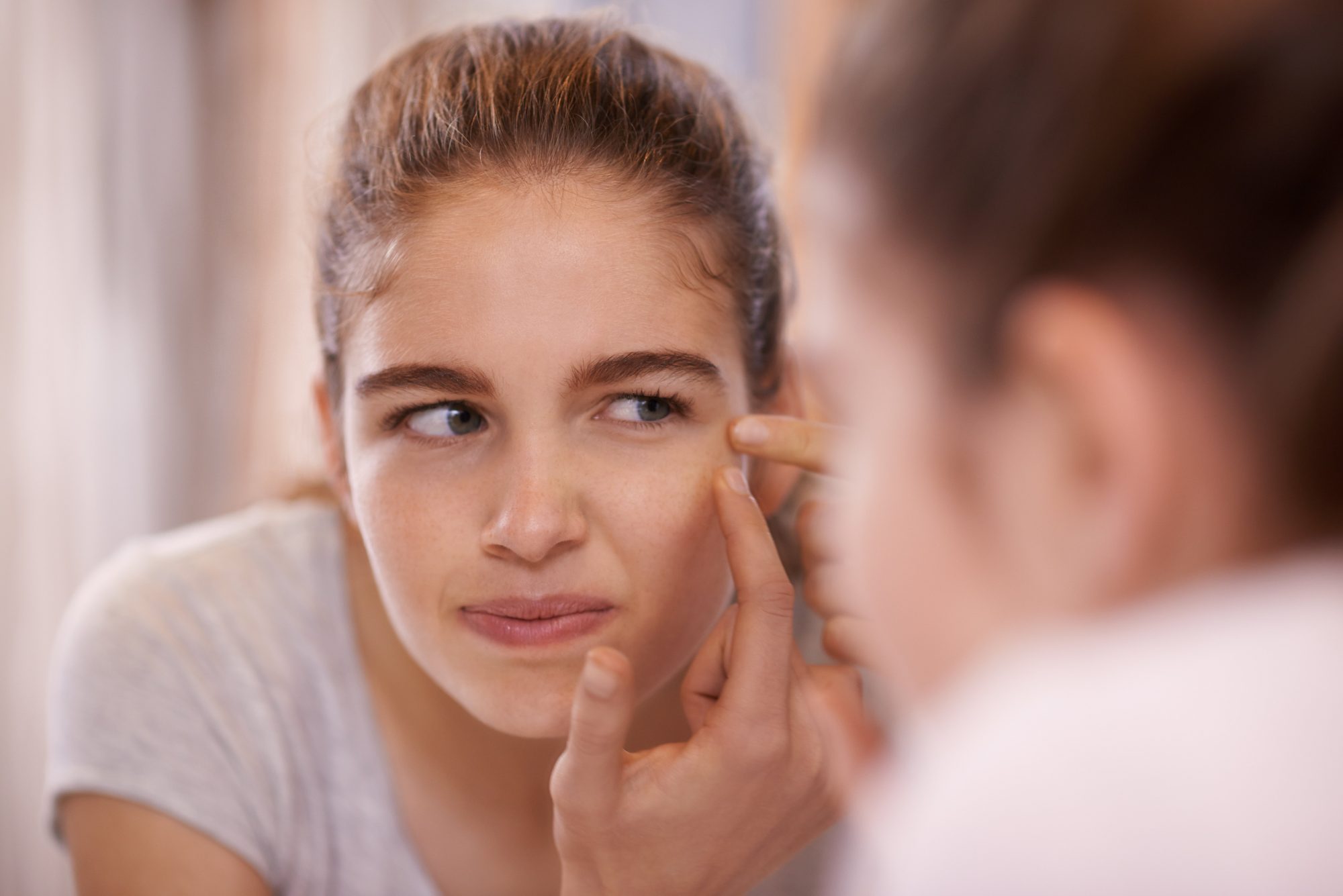While you’re most likely to develop cystic acne in your teens or early 20s, the condition can occur in someone as young as eight or as old as 50. Cystic acne can affect large areas of your skin and leave permanent scars. Your face, chest, back, upper arms or shoulders can be affected.
Severe cystic (or nodular) acne is more common in men, but women get it too. Women often have cysts on the lower half of the face.
When a pore in your skin gets clogged with dead skin cells, the normal skin bacteria that live in the pore may grow. This, in turn, causes your immune system to react with redness and swelling, resulting in a pimple. Cystic acne happens when the inflammation goes deep into your skin, creating a red, tender bump that is often full of pus.
A cystic acne bump may hurt or itch. If the cyst bursts, the inflammation can worsen and cause scarring.
Although the exact cause of cystic acne is not clear, hormones called androgens play a part. When you’re a teenager, androgens increase. This creates changes in your skin that can result in clogged pores. Also, if one of your parents had severe cystic acne, you have a greater chance of having it.
“Cystic acne can damage your skin and your self-esteem,” says Dr. Lauren Snitzer, a board-certified dermatologist at U.S. Dermatology Partners Sugar Land. “Thankfully, there are many treatment options that can help restore your skin and your confidence.”
What Is the Treatment for Cystic Acne?
Cystic acne does not respond to over-the-counter medications that usually work on milder acne conditions. Your dermatologist might recommend one or more of the following:
- Oral antibiotics help control bacteria and lower inflammation. Sometimes your acne may not respond to antibiotics, though. Or you may find they don’t work as well after a few years.
- Birth control pills help some women by regulating their hormones.
- Prescription-strength creams, lotions or gels with retinoid, a form of vitamin A, can help unplug your pores and help antibiotics do their job.
- Isotreitnoin [ahy-soh-tri-tin-oh-in], known by the trade name Accutane, attacks all causes of acne. Accutane is a form of vitamin A. It reduces the amount of oil released by oil glands in your skin and helps your skin renew itself more quickly. Dosage is usually one pill taken once or twice daily for about five months. For most people, this clears the skin completely and permanently. If it recurs, you can repeat the treatment. Women should avoid becoming pregnant while taking this drug.
Treatment Guidelines
- Avoid touching or picking at the cysts or blemishes. You may cause the infection to deepen and spread.
- Relax as much as possible. Stress can cause your body to release more hormones, which can make acne worse.
- A healthy lifestyle that includes plenty of sleep and exercise is recommended. Research suggests that a low-glycemic diet, which limits sugar, can help symptoms.
Looking to Visit a Dermatologist for Cystic Acne Treatments?
If you show signs of cystic acne, it’s important to see your dermatologist. This is not a condition that just goes away on its own. You need the expertise of a board-certified dermatologist to diagnose and treat it. We have multiple locations throughout the country, so fill out our simple online form to get in touch with us. One of our local team members will reach out to you shortly to answer your questions or schedule an appointment for you to visit us soon.
Find a location near me
or

